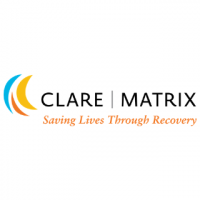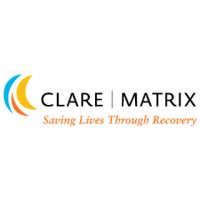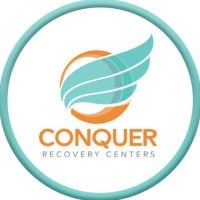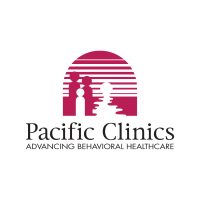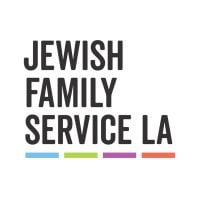AADAP - Asian American Drug Abuse Program
Drug Rehab Center in Los Angeles, California
AADAP is an Accredited Addiction Treatment Facility in Los Angeles, California that provides tailored, compassionate Dual Diagnosis treatment for Mental Health issues, Substance Abuse, Alcoholism and Opioid Addiction; with access to comprehensive services and medication-assisted treatments, as well as the option to utilize Private Health Insurance for financial assistance.
About AADAP - Asian American Drug Abuse Program in California
AADAP - Asian American Drug Abuse Program, situated in the vibrant city of Los Angeles, California, is a renowned mental health and addiction treatment facility that has been providing comprehensive care to individuals battling substance abuse and mental health disorders since its establishment. With a primary focus on serving the Asian American community, AADAP offers a wide range of outpatient services designed to support individuals on their journey to recovery.
• Comprehensive assessments: AADAP conducts thorough evaluations to identify each individual's unique needs and develop personalized treatment plans.
• Evidence-based treatment modalities: The facility employs scientifically proven therapies and approaches to ensure effective care.
• Culturally sensitive care: AADAP recognizes the specific challenges faced by Asian American communities and provides services tailored to their cultural background.
• Aftercare planning: The program emphasizes the importance of ongoing support and offers resources to help individuals maintain their sobriety beyond treatment.
AADAP holds accreditation from the Commission on Accreditation of Rehabilitation Facilities (CARF), demonstrating their dedication to upholding the highest standards of care. The facility accepts private health insurance, making their services more accessible to those seeking treatment.
AADAP specializes in treating a range of addictions, including drug addiction, substance abuse, alcoholism, and opioid addiction. They also provide care for individuals with dual diagnosis, addressing both mental health disorders and substance abuse concurrently. The facility offers various levels of care, such as outpatient and intensive outpatient programs, ensuring that each individual receives the appropriate level of support.
The expert team at AADAP employs a variety of treatment methods, including individual counseling, group therapy sessions, family therapy, relapse prevention education, and life skills training. By combining these approaches, AADAP aims to help individuals overcome addiction, develop coping strategies, and build a strong foundation for long-term recovery.
Genders
Ages
Modality
Additional
Accreditations

CARF
The Commission on Accreditation of Rehabilitation Facilities (CARF) is a non-profit organization that specifically accredits rehab organizations. Founded in 1966, CARF's, mission is to help service providers like rehab facilities maintain high standards of care.
Conditions and Issues Treated
Substance abuse is the excessive use of any drug. This includes alcohol, medications, and illegal drugs. Substance abuse is treated with a combination of physical and mental treatments. Patients detox and follow up with therapies that target the underlying cause of the addiction. Substance abuse is a severe problem that can be successfully treated with a variety of therapies. AADAP - Asian American Drug Abuse Program treatment uses a combination of therapies along with other resources to overcome substance abuse.
Opioid addiction treatment should be done in a medically supervised drug rehab. While taking opioids, users will typically use other substances to enhance the effects of opioids or to reduce the adverse effects of opioid use. Opioid addiction treatment will include detoxification and drug rehab counseling to help both the user and their loved ones learn how to live a successful sober lifestyle.
Treatments such as methadone, buprenorphine, and naltrexone are three medications that can help treat opioid addiction. These drugs work on the brain’s pleasure center and reduce cravings and the effects of illicit opioids such as heroin. These drugs can be either given orally or by injection. Individual drug rehab counseling sessions can be helpful to discuss any questions or concerns with the drug treatment program. This counseling will also help the user set goals for when they finish drug rehab.
Opioid addiction recovery is a long process. Many of the changes to the brain caused by opioid use cannot be undone, but with time and the proper treatment, a person can return to normal function. After detox, treatment will include drug rehab counseling and entering a halfway house or sober living community. Aftercare is critical to long-term recovery, as it helps the user avoid relapsing and entering back into drug rehab.
Levels of Care Offered
This center offers a variety of custom treatment tailored to individual recovery. Currently available are Dual-Diagnosis, Intensive Outpatient, Outpatient, with additional therapies available as listed below.
Intensive outpatient treatment is a type of comprehensive addiction care. Unlike conventional residential treatment programs, the patients live at home during the recovery process. This means that one can continue working and caring for their families. These also allow people to keep pursuing their studies while also working on their sobriety.
Outpatient treatment can help one transition to normal life from the round-the-clock supervision and treatment available during inpatient treatment. It is an excellent tool to ensure long-term recovery. However, it is essential to note that intensive outpatient treatment in itself does not remove patients from the real-world setting. This means there’s always a higher risk of coming across environmental triggers. To further prevent relapse, an outpatient treatment center should be able to provide ongoing support services.
Once the patient is enrolled in an intensive outpatient treatment program, they will be expected to attend therapy and group meetings daily for a stipulated period. The frequency and duration of each session will depend on the patient’s needs and level of addiction. This can help curb the habit and deal with underlying issues that led to it. Most of these professional treatments are designed to allow patients to structure their daily schedules in a way that is conducive to recovery.
“Outpatient treatment is ideal for those who have a lower intensity addiction. It’s also suitable for those with a supportive environment and those on a tight budget.
Outpatient treatment can be considered the lowest intensity level of addiction treatment. It is ideal for early phase addiction or lower intensity addictions. It may involve weekly sessions instead of daily. Peer group support, 12-step programs, and individual counseling may still be used and anti-addiction medication.
Therapies & Programs
No single treatment works for all addicts; therefore, the goal of treatment and therapy should be to find what works best for each individual. Some people requiring addiction treatment may only need a few weeks of inpatient care. Others will require long-term residential care. Tolerance and withdrawal levels vary from person to person and thus affect the intensity of the treatment needed.
If an individualized approach to treatment and therapy is not offered, addicts may fail to reap benefits from their efforts. Professionals must customize plans according to their patient’s needs, limitations, and strengths. The goal of all forms of addiction treatment should be for addicts to find healthy ways to cope with their addiction and its underlying causes.
The therapies usually include siblings, children, and parents who are involved in their daily lives. These sessions are vital because they address past issues that may have hampered an addict’s or alcoholic’s recovery and provide support at a crucial time!
One of the most critical aspects of family therapy is helping addicts’ loved ones see their situation in a new light. It’s also one of the most challenging things a family can do when a loved one struggles with addiction or alcoholism.
Group therapy is held in a safe, controlled setting where patients can feel comfortable sharing their struggles and gaining perspective through shared conversations. It takes place in a group rather than one on one to prevent feelings of isolation or being unique in their situation while creating an environment for addicts at AADAP - Asian American Drug Abuse Program to develop fellowship, accountability, and support. Group therapy is an important tool in recovery that prevents cravings that prompt a return to active addiction.
Payment Options Accepted
For specific insurance or payment methods please contact us.
Is your insurance accepted?
Ask an expert, call (888) 674-0062
Additional Details
Specifics, location, and helpful extra information.
Los Angeles, California 90016 Phone Number(323) 293-6284 Meta DetailsUpdated April 15, 2024
Staff Verified
AADAP - Asian American Drug Abuse Program Patient Reviews
There are no reviews yet. Be the first one to write one.
Los Angeles, California Addiction Information
More than 3 million of California's citizens are addicted to illegal drugs. Almost 800,000 people use hard drugs, almost 5 million use marijuana, and another 2.1 million abuse alcohol every year. Other substance abuse issues such as binge drinking and teen drug use are also common. Many illegal drugs such as cocaine, heroin, methamphetamine, and marijuana are smuggled into the state from Mexico.
10% of adults in Los Angeles have used illicit drugs or abused prescription drugs within the past year. Heroin, marijuana, prescription pain relievers and cocaine are widely abused in Los Angeles. Over 130,000 people in the city struggle with addiction to drugs or alcohol. Many residential rehab facilities in the area can provide long-term care. The best way to find the right treatment option is to speak with a professional.
Treatment in Nearby Cities
- Santa Rosa, CA (390.8 mi.)
- El Centro, CA (181.5 mi.)
- Compton, CA (11.3 mi.)
- Turlock, CA (278.0 mi.)
- Rosemead, CA (15.4 mi.)
Centers near AADAP - Asian American Drug Abuse Program
The facility name, logo and brand are the property and registered trademarks of AADAP - Asian American Drug Abuse Program, and are being used for identification and informational purposes only. Use of these names, logos and brands shall not imply endorsement. RehabNow.org is not affiliated with or sponsored by AADAP - Asian American Drug Abuse Program.


